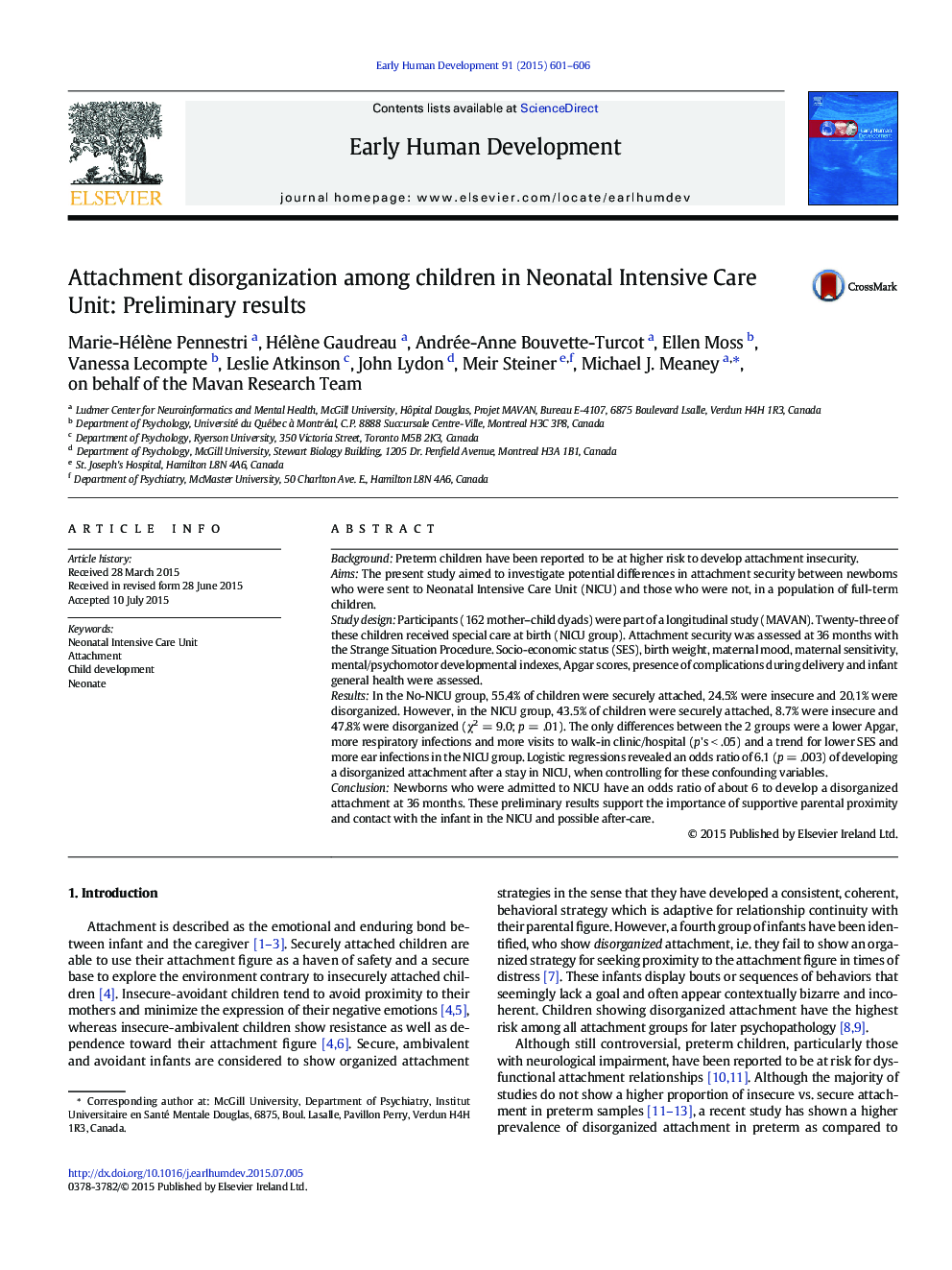| Article ID | Journal | Published Year | Pages | File Type |
|---|---|---|---|---|
| 3917738 | Early Human Development | 2015 | 6 Pages |
•These preliminary results suggest that placement in NICU is associated with the development of attachment disorganization.•This association was found in a population of full-term infants, i.e., without the confounding effect of prematurity.•It may be important to minimize trauma and parental fears, while facilitating closeness between parents and child in NICU.
BackgroundPreterm children have been reported to be at higher risk to develop attachment insecurity.AimsThe present study aimed to investigate potential differences in attachment security between newborns who were sent to Neonatal Intensive Care Unit (NICU) and those who were not, in a population of full-term children.Study designParticipants (162 mother–child dyads) were part of a longitudinal study (MAVAN). Twenty-three of these children received special care at birth (NICU group). Attachment security was assessed at 36 months with the Strange Situation Procedure. Socio-economic status (SES), birth weight, maternal mood, maternal sensitivity, mental/psychomotor developmental indexes, Apgar scores, presence of complications during delivery and infant general health were assessed.ResultsIn the No-NICU group, 55.4% of children were securely attached, 24.5% were insecure and 20.1% were disorganized. However, in the NICU group, 43.5% of children were securely attached, 8.7% were insecure and 47.8% were disorganized (χ2 = 9.0; p = .01). The only differences between the 2 groups were a lower Apgar, more respiratory infections and more visits to walk-in clinic/hospital (p's < .05) and a trend for lower SES and more ear infections in the NICU group. Logistic regressions revealed an odds ratio of 6.1 (p = .003) of developing a disorganized attachment after a stay in NICU, when controlling for these confounding variables.ConclusionNewborns who were admitted to NICU have an odds ratio of about 6 to develop a disorganized attachment at 36 months. These preliminary results support the importance of supportive parental proximity and contact with the infant in the NICU and possible after-care.
